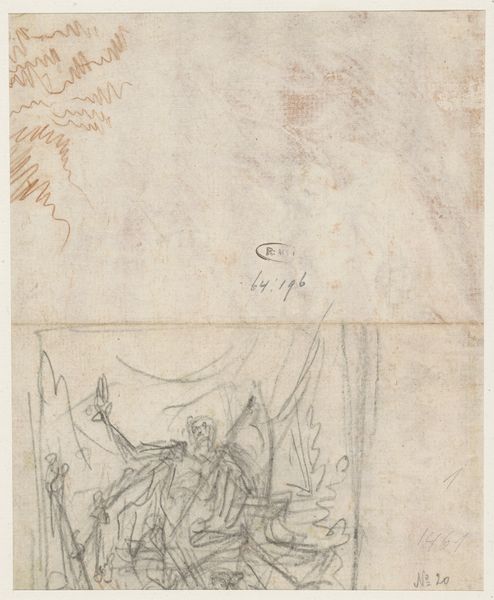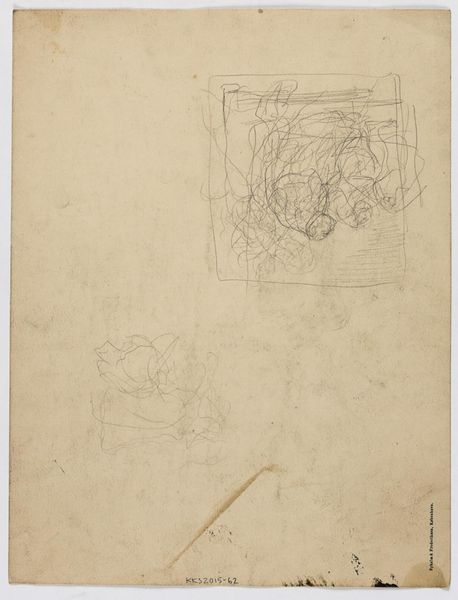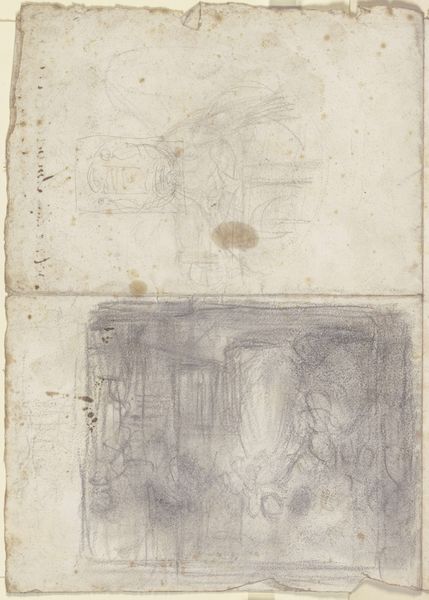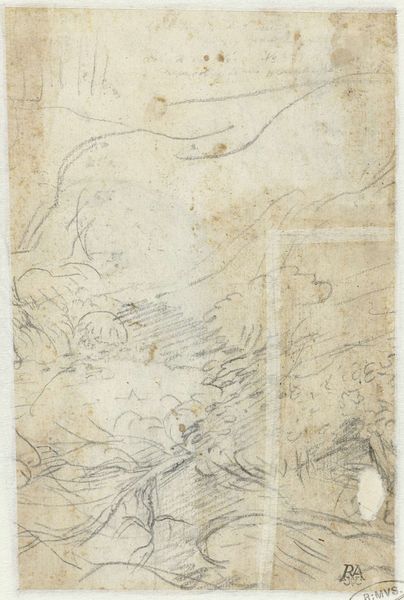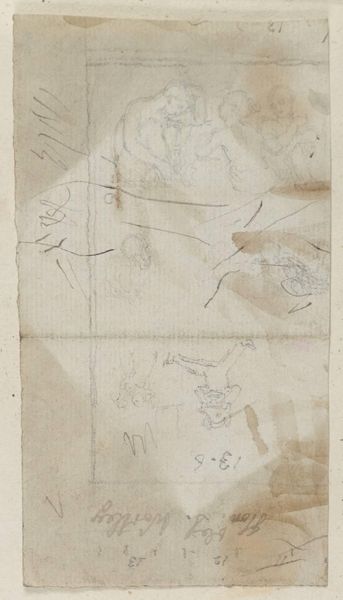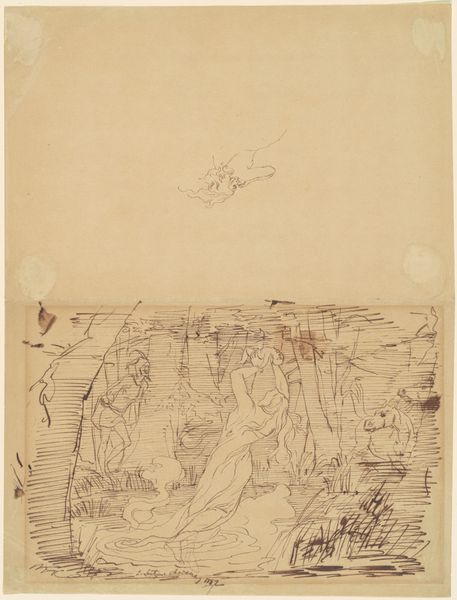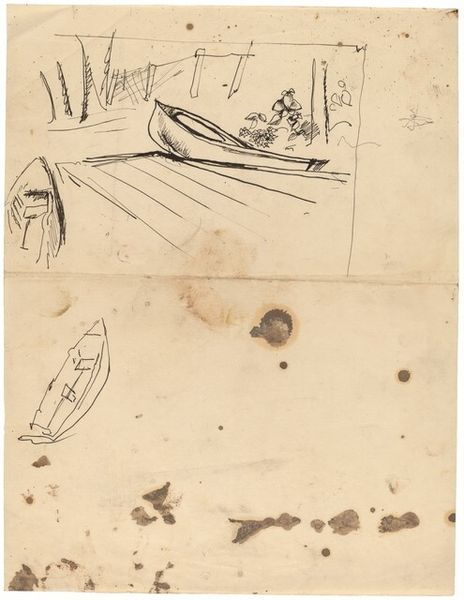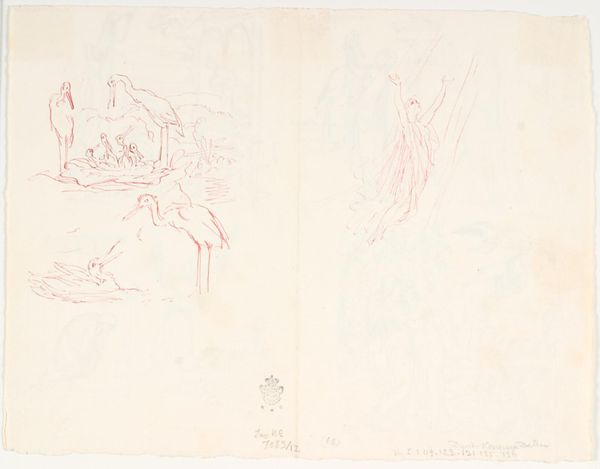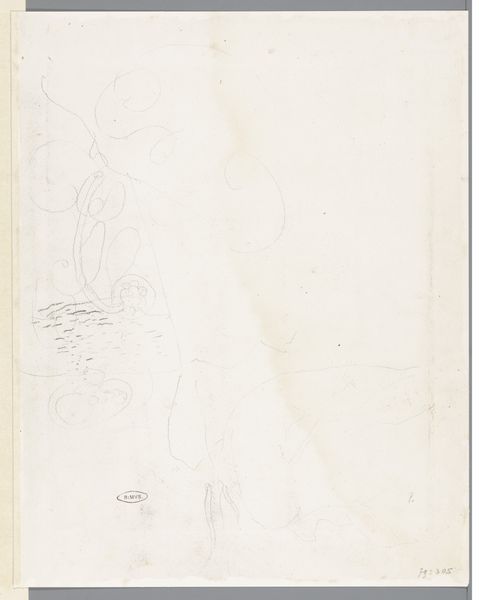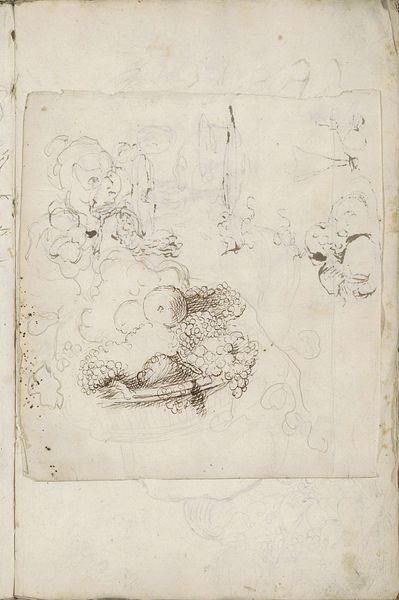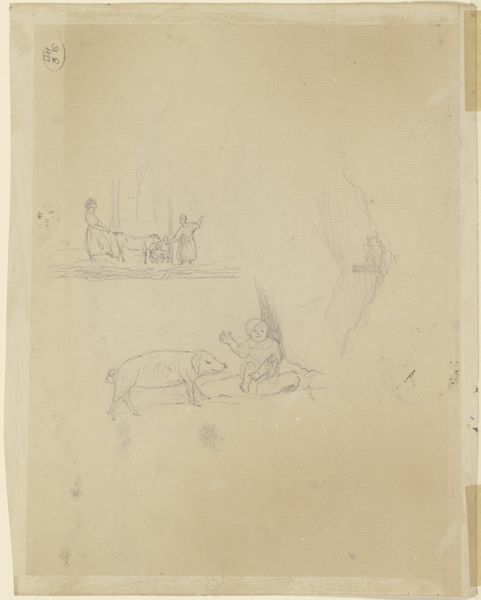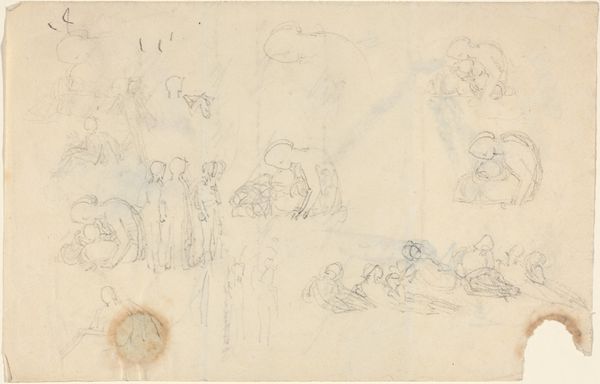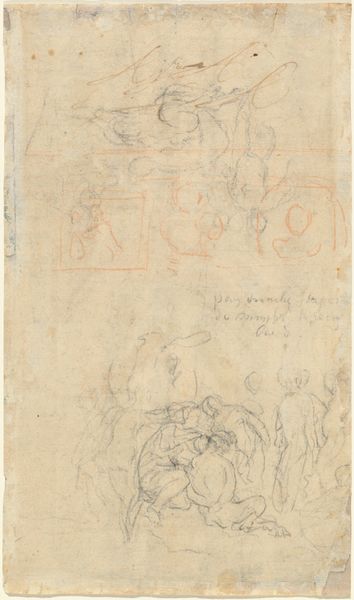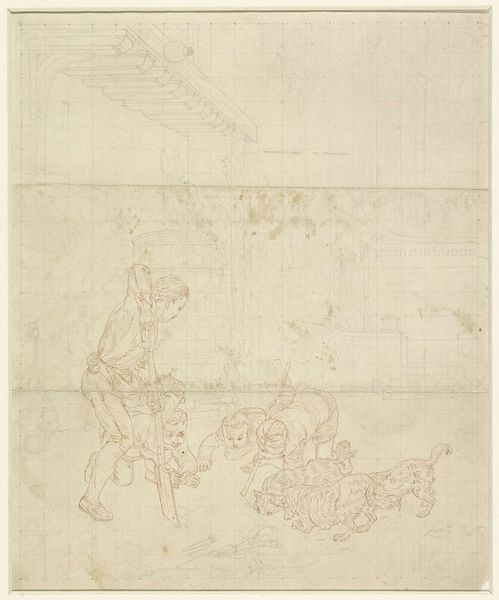![Untitled [recto] by Mark Rothko](/_next/image?url=https%3A%2F%2Fd2w8kbdekdi1gv.cloudfront.net%2FeyJidWNrZXQiOiAiYXJ0ZXJhLWltYWdlcy1idWNrZXQiLCAia2V5IjogImFydHdvcmtzLzc1OWI4Y2E5LWQxMzYtNDkyNC1iYzMzLTI0OWY2YjYxZjk4OC83NTliOGNhOS1kMTM2LTQ5MjQtYmMzMy0yNDlmNmI2MWY5ODhfZnVsbC5qcGciLCAiZWRpdHMiOiB7InJlc2l6ZSI6IHsid2lkdGgiOiAxOTIwLCAiaGVpZ2h0IjogMTkyMCwgImZpdCI6ICJpbnNpZGUifX19&w=1080&q=75)
drawing, pencil
#
drawing
#
figuration
#
pencil
#
abstraction
Dimensions: overall: 21.5 x 27.9 cm (8 7/16 x 11 in.)
Copyright: National Gallery of Art: CC0 1.0
Editor: Here we have an untitled pencil drawing, made by Mark Rothko. I find the loose, sketchy lines and almost ghostly figures quite intriguing. What’s your take on this drawing? Curator: It’s fascinating to consider the materials at play here. Pencil on paper: seemingly simple, yet capable of conveying so much. The paper itself, its texture, its possible imperfections, become integral. Was it mass-produced or handmade? How does that affect our understanding of Rothko's intentions? The very *making* of this drawing, the physical act, leaves its trace. Editor: That’s an interesting point. I hadn’t considered the production of the paper. So, it’s not just the image but the history of the materials, too? Curator: Precisely. And look closer. The marks, the smudges… they reveal Rothko's process, his engagement with the medium. It isn’t just about some abstract idea floating in the air – but rather very material constraints which push the art forward. We think of Rothko as primarily a painter, but his works on paper highlight that this move wasn't preordained but developed through practice. How does seeing his labor change how we appreciate Rothko's process? Editor: So it makes it less precious, in a way? Almost like seeing an artist work through ideas... I think I often imagine masterpieces fully formed in the artist’s mind. This challenges that. Curator: Exactly! We’re seeing the *work* in the work. Think about how industrial production of pencils influenced drawing practices, the social conditions that made this kind of art possible. It helps demystify the art world, revealing the physical realities behind creative production. Editor: That’s really given me a new way to approach art. Thinking about it in terms of production and process and materials. Curator: Indeed, and to question the supposed divide between high art and craft. Both involve labor, skill, and the transformation of materials. We can trace their histories.
Comments
No comments
Be the first to comment and join the conversation on the ultimate creative platform.
